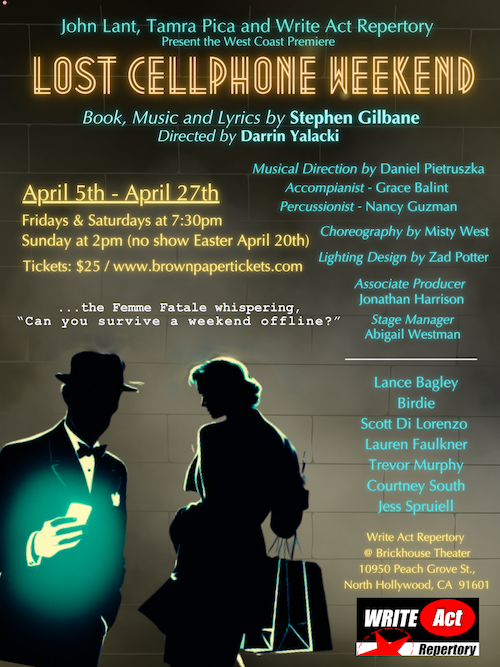Eisenhower: This Piece of Ground
Reviewed by Iris Mann
New LA Repertory at the Hudson Theatre
Through Jan. 22
RECOMMENDED
Tony Award winner John Rubinstein virtually becomes Dwight D. Eisenhower in this tour de force solo performance of Richard Hellesen’s play, Eisenhower: This Piece of Ground. The 34th President of the United States, Eisenhower is also known for having been the Supreme Commander of the Allied Expeditionary Forces who directed the invasion of Normandy on D-Day during World War II.
The play is presented in association with New Los Angeles Repertory Company as part of its “plays for peace” series. The aim of the series is to examine the reasons for going to war, the means by which people engage in wars, those whom war affects, and the leaders who manage to avoid it. Although this is a work of fiction, it is informed by Eisenhower’s memoirs, correspondence and speeches.
The action takes place on his farm in Gettysburg, Pennsylvania. Hellesen has us imagine that Eisenhower is speaking into a recording machine, reminiscing about his life and his philosophy in preparation for a book. From the beginning, he is visibly upset, having just read in the New York Times Magazine that a poll of 75 historians rating US presidents have placed him at number 22 out of 31. These poll contributors describe him as “a great American, not a great president” — with some “near great” votes, but many more in the “below average” and “failure” categories.
As he reviews his life, Eisenhower talks of his family’s struggles when he was a child, his acceptance to West Point, his subsequent military career, his marriage to Mamie, his agonizing over the risks to the troops on D-Day and his presidency as a Republican. Attaining the rank of general was, in his eyes, his crowning achievement. “I worked most of my life to be general,” he says, “and that title means more to me than anything. But our military is defending a way of life, not just territory.”
Among other things, Eisenhower became known for warning against what he called “the military-industrial complex.” At one point, he insists, “…take on the fools who think war should be the first resort, not the last — and then add the fellas for whom bombs and guns are their paycheck – — that military-industrial complex will come down on you like a sledgehammer.”
This production could have devolved into a pedantic history lesson laced with a fair amount of preaching, but for Rubinstein’s dynamic and at times, quietly moving, performance; he commands the audience’s attention throughout. The actor’s energy and passion never wane under the unobtrusive, smooth direction of Peter Ellenstein.
The drama is further enhanced by the photos and scenes from Eisenhower’s life (sound and projection designer Joe Huppert) projected onto the back wall.
Helleson also leavens the narrative by injecting just the right amount of humor, as Eisenhower comments on the people and events in his life, including Douglas MacArthur. Of him, Eisenhower says, “I learned a lot from General MacArthur – had the greatest regard for his military achievements. But that was nothing compared to the regard he had for ‘em.”
Many of the issues brought up in the play are still with us today, with a prescient Eisenhower warning of “extremists just masquerading as conservatives.” He emerges from this portrayal as a man of moderation, who believed in compromise, conciliation and persuasion. By 2022, he had risen in the rankings of U.S. presidents from number 22 in 1962 to number five.
New LA Repertory at the The Hudson Theatre, 6539 Santa Monica Blvd., Hollywood. Fri.-Sat., 8 pm, Sun., 3 pm; thru Jan. 22. www.onstage411.com/eisenhower














